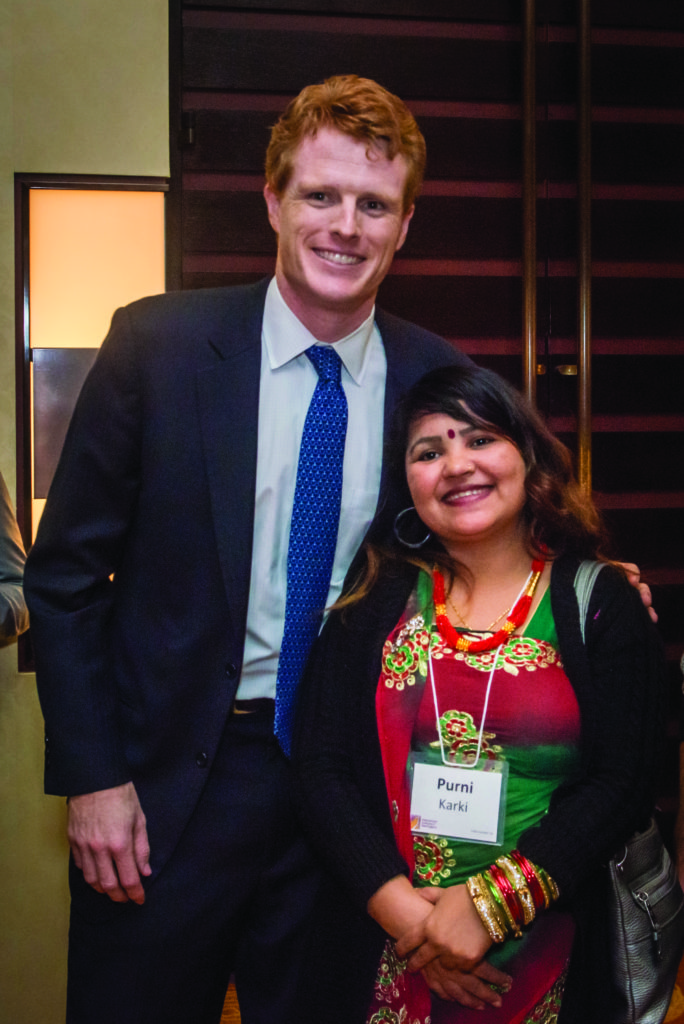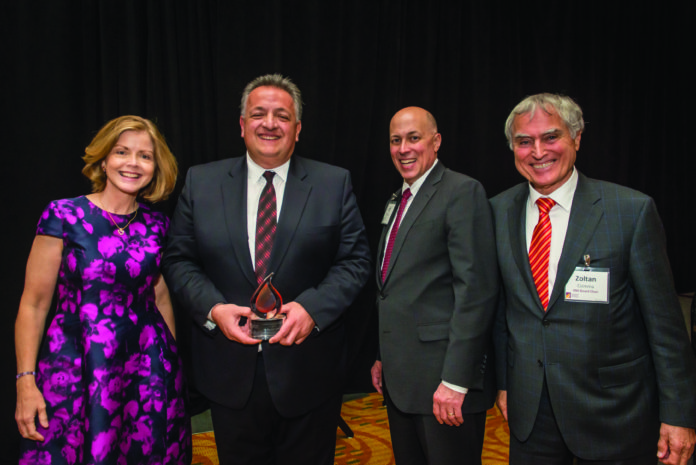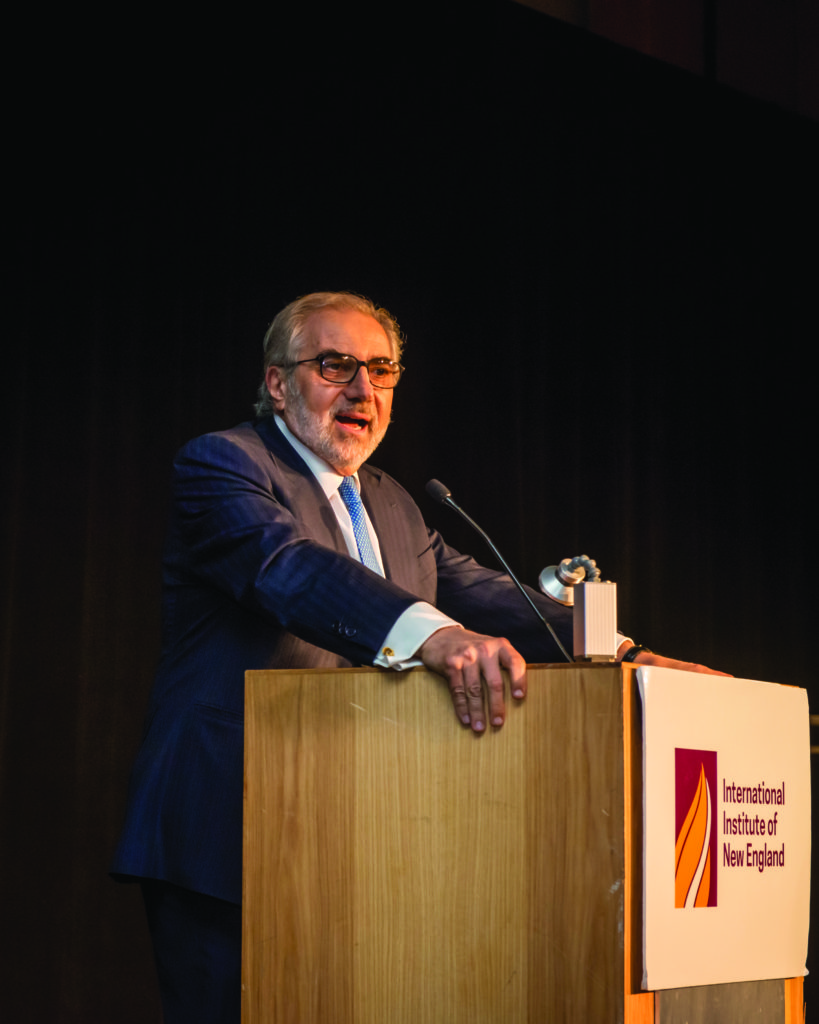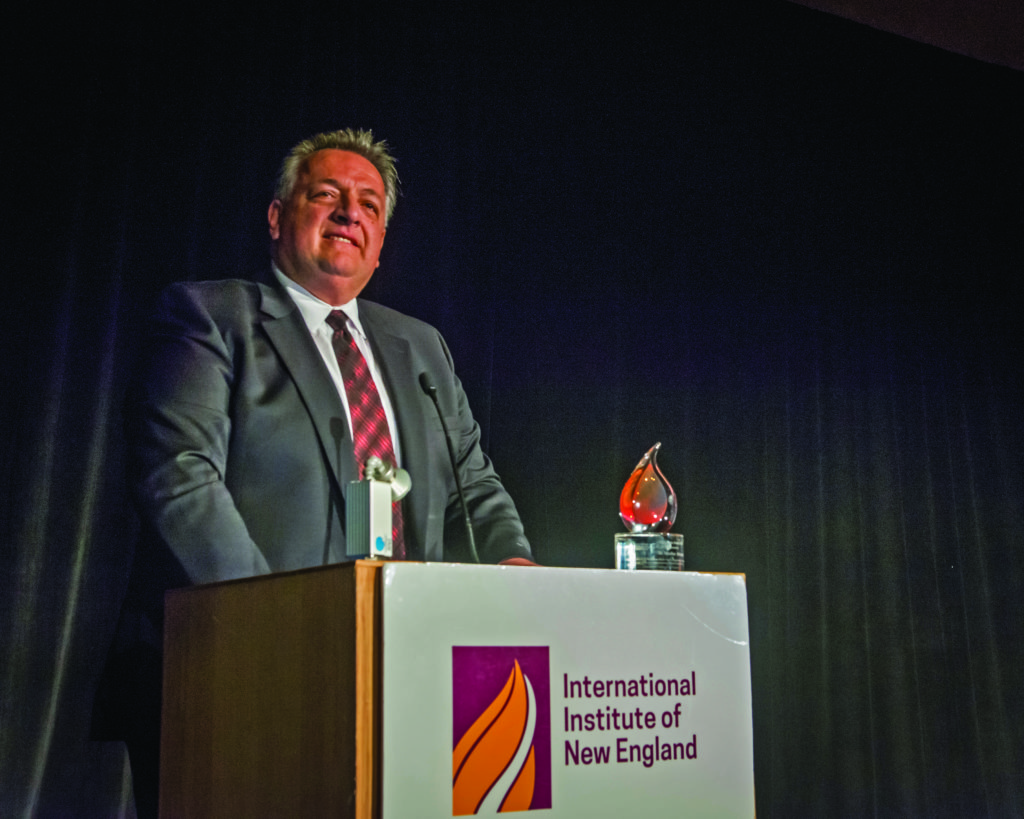By Alin K. Gregorian
Mirror-Spectator Staff
BOSTON — About 700 community, business and education leaders from around Massachusetts gathered on November 30 at the InterContinental Boston at the annual International Institute of New England (IINE) fundraiser, to honor Dr. Noubar Afeyan as he received the organization’s top award, the Golden Door.

The century-old organization aids immigrants and refugees as they arrive in the US, providing them with housing, English lessons and job training. They often meet the people they help at either Logan Airport or Manchester, NH’s airport and take them directly to their new residences.
The theme of the evening was not only charity (of which there was plenty, with the event raising more than $768,000) but combating the current insular tenor of the administration of President Donald Trump.
Those helped by the organization, at first glance, seemed worlds away from the well-heeled crowd of movers and shakers sipping cocktails and munching on tiny hors d’oeuvres. However, the honoree and many guests happened to be one-time immigrants and refugees themselves.










